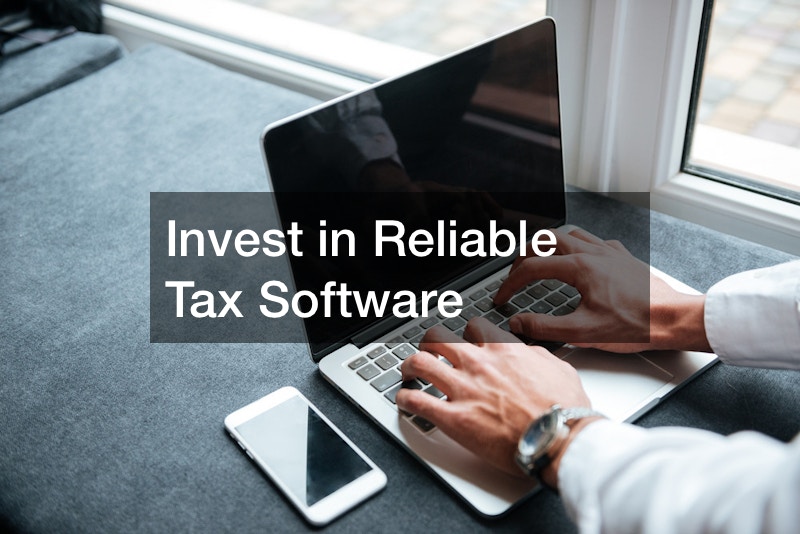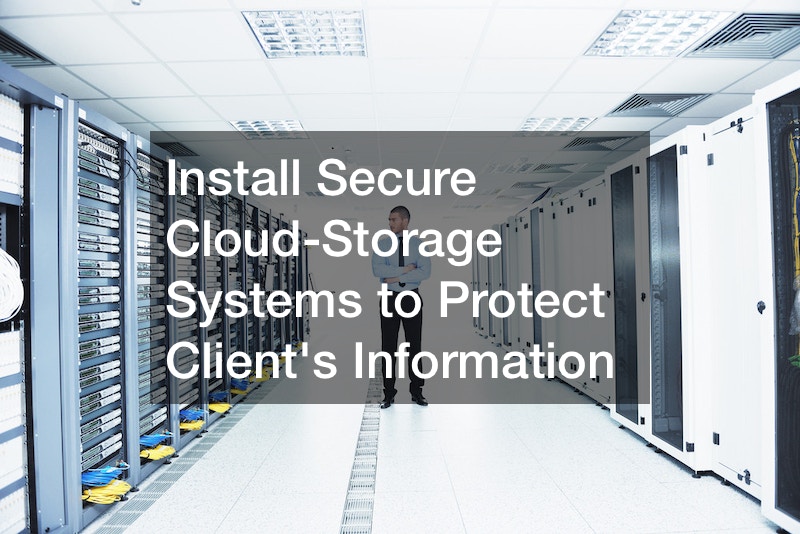Running a tax business can be profitable if done well. A report by BBB shows that in 2021 alone, tax preparation services generated $10.8 billion in revenue. Similarly, an IBIS World report shows competition as a big challenge in the tax business industry. So, if you want to learn how to run a tax business, you need top-level tips. Here are the top 10 tips on running a tax business, specifically related to equipment and skills.
Equipment for Running a Tax Business
To learn how to run a tax business, you must learn the necessary tools to make your work easier. You’ll need electronic devices, software, hardware, and furniture to keep things learning smoothly. While you could use many types of equipment, here are the ones you should prioritize.
Tip #1: Invest in Reliable Tax Software

If you get only one piece of equipment for your business, it should be tax preparation software. Most tax professionals find tax preparation software handy, especially as their business grows. The Tax Adviser reports that 95% of tax professionals surveyed use tax software. It’s not hard to see why. Tax software improves efficiency and productivity.
Tax software will also help you maintain accuracy, which is vital for your brand reputation. You are more assured about client data protection. Even more, tax software helps you organize. When shopping for tax software, look for a user-friendly design. Find out how easy integrating the software with other e-filing services is. Is it up-to-date with forms and regulations?
Since you are starting, cost affordability should be a top factor to consider. Still, don’t compromise on security. The software should keep client data safe from malicious individuals. Even more, consider its scalability. Can it handle your business when you expand? Learning how to run a tax business requires balancing cost with value.
Tip #2: Use High-Quality Electronic Hardware
High-quality electronic hardware is another set of equipment you should focus on. This includes everything from computers, scanners, and laser printer systems. When purchasing computers buy those with high processing speed and storage capacity. Check the monitors. Do they have high resolution to reduce eye strain? When buying additional hardware such as printers and scanners, buy from reputable brands.
Once you have invested in professional-grade hardware, maintain it regularly. Equipment such as computers and printers is prone to damage if neglected. Ensure your office is clean, dust-free, and humidity is at the right levels. If you can, hire an office maintenance business to schedule maintenance and updates. They can also do upgrades after a few years.
Since you’re dealing with sensitive customer data, protect your computers and hardware. Install anti-virus to protect data from cyber-attacks. Also, ensure to encrypt your data drives. Remember, when your tech works optimally, you can focus on your clients without worry.
Tip #3: Invest in Professional Furniture That Boosts Productivity

One of the tips we can’t miss out on how to run a tax business guide is investing in good furniture. Sometimes investing in quality furniture gets lost in the many business demands. In a survey by Staples, 56% of employers and 57% of staff said office furnishing contributes to high productivity. Even if you are starting alone, invest in ergonomic furniture. It will also give your business a professional feel.
Apart from productivity, furniture can boost the organization. Imagine you have a client waiting but can’t remember where the mailing supplies are. Invest in easy-to-organize cabinets. Consider how easy it is to maneuver around your office layout. Does your furniture make it easy for you?
One of the things you might have to consider is cost. If you’re only starting out, buying lower-quality furniture and upgrading later may make sense. However, you’ll save more by investing in quality furniture. You can opt instead to invest in sustainable but affordable options.
Tip #4: Invest in Reliable Communications Systems
If you want to run a successful tax business, communications are vital. We will discuss the skill later, but first–get reliable communication systems. Customer experience is now more important than ever. In a PwC survey, 80% of American respondents cited speed and convenience as essential. Reliable communication systems enable timely and organized responses.
When choosing cloud phone systems, consider features, reliability, and security. You can have a phone system with voicemail or auto-attendant. It’s quite vital to know your customers’ preferred mode of communication. If they don’t like phone calls, then email is a better option. For email communications, security is a must. So, look for providers who offer encrypted systems. The email system should also have multi-step authentication and anti-virus protection.
For most clients seeking tax preparation services, time is of the essence. So, most will contact you remotely. Video conferencing systems are on the increase, and for a reason. Invest in a secure and reliable conferencing system that allows easy communication. If you have employees train them on the technical aspects of communication systems.
Tip #5: Install Secure Cloud-Storage Systems to Protect Client’s Information

As a tax professional, you can access sensitive client data. To learn how to run a tax business, start by protecting this data. From the onset, invest in secure cloud-storage systems to protect this information. Sure, you have to take physical security seriously. Still, wireless security is just as vital, especially in the tax preparations sector. When purchasing cloud-based solutions, ensure you have security protocols in place.
You should also train employees on security protocols. You could take all the necessary measures and then lose client data through an employee. The Cyber Security Infrastructure Agency says 43% of cyber attacks target small businesses. You protect your business by taking necessary measures, such as data encryption.
Apart from cyber-attacks, you could lose data from human error or hardware failure. That’s why cloud-based storage systems are so vital. Install automated backup systems so you can conveniently update data. It’d also be best to regularly check the backup systems to ensure they’re working well.
Skills for Running a Tax Business
Even more crucial than equipment is your skills. The tax preparation industry is quite competitive. To stand out, you need to have certain skills. Start with these skills if you want to learn how to run a tax business. Here are the top relevant skills you should focus on building and maintaining.
Tip #6: Master Tax Knowledge
To learn how to run a tax business, you must master tax knowledge. Other businesses and professionals trust you because you’re an expert. Sure, maybe you study tax law or accounting in school. Still, you must be intentional about learning what’s happening in the tax world. Is there a new regulation? Is there a recent change in business law? The more you know, the more you can help your clients.
Since you can only know too much, specialize. For example, you can specialize in small business taxes or estate planning. Specializing makes it easier for clients to find you and gives you a competitive edge. Build a strong knowledge foundation. If you’re using tax software, familiarize yourself with it. Keep up-to-date with events in the tax industry.
Building a knowledge foundation doesn’t have to be formal always. For example, you don’t need to spend nights at your study with the Internal Revenue Code. You can attend workshops and seminars. You can also read the latest industry publications.
Tip #7: Develop Strong Work Ethic Skills
Running a tax business means you don’t have a boss. You are the boss. And if you want to learn how to run a tax business, develop a strong work ethic. Transferring the skills to employees is easier when you have a strong work ethic. Even when they’re fresh off an employment agency. The first thing you should do is set clear objectives and goals. What do you want to achieve in a specified period?
Another essential tip is consistency. Many business owners start with energy and passion but then drift off. A good way to remain consistent is to set routines. For example, you can begin each morning by reading and replying to emails. Setting a routine helps you focus on the most important tasks first.
Another aspect of work ethic is accountability. Sometimes you’ll not feel like it, so you should hold yourself accountable. When you set deadlines, keep them. Working with a business coach to keep you accountable may also be helpful.
Tip #8: Develop Clear, Professional Communication Skills

As discussed earlier, communication is vital for creating positive customer experiences. Communication is key when you’re engaging clients, business insurance providers, or other partners. Communication is not simply replying or talking. It’s how you behave when you communicate. It’s both verbal and non-verbal. For example, if a client sends an inquiry, and it takes you three days to reply, it communicates about you.
The modern customer loves to be wooed. So, if you want to learn how to run a tax business, develop superb communication skills. Tax is often a complex topic for many. It’ll be helpful if you can communicate clearly to clients with minimal tax knowledge.
You can take some courses on professional communication. It’d also be helpful to do a self-evaluation. Where are the places you need to grow in the most? You may also benefit from coaching lessons. Remember, you can grow in any skill through consistency and commitment.
Tip #9: Prioritize Organizational and Efficiency Skills
One of the challenging aspects of running a business is balancing. As a tax professional, you’ll likely be working with more than one client at a time. You’ll need organizational skills. Organization skills are not only for making the most out of your space or knowing where the scanner is in a flash. It’s also about how you plan yourself and the tasks.
Imagine this: you set up a meeting with a client. Five minutes before the meeting, you remember the email you haven’t replied to in three days. Clients will not get a perception of professionalism if you seem disorganized. They must know that you planned for them.
A good tip is automating. Look for automation tools that can make your work easier. For example, if you post on social media thrice a week, create a batch of content. Then automate the process so content updates go on even in your absence.
Tip #10: Gain Marketing Skills That Put You Ahead
Every business requires marketing. As a small business owner, you may not have the luxury of a big marketing budget. That’s why you need some marketing skills to put you ahead. Sure, you can’t do everything. You may have to outsource some marketing activities, such as website design. Still, you’ll know who to hire when you understand something about marketing.
Some platforms, such as HubSpot and Allison’s, offer free marketing courses. You can enroll to gain some handy skills for your business. Focus on digital marketing because of the benefits it offers to small businesses. For example, you can track data to see if your marketing strategy works. You can also work within your budget. Social media platforms allow you to customize your message to your target audience.
Don’t limit your skills to digital marketing only. If you want to learn how to run a tax business, Google is your friend. Referrals also remain a powerful marketing arsenal for small businesses. If you offer excellent customer service, other businesses will find recommend you. You are two steps ahead of the competition when you have excellent marketing skills.
You now know the top equipment and skills-related tips to put you on the top. If you want to learn how to run a tax business, this comprehensive guide will help you. If you have to choose, focus on skills because they take longer to get. Above all, keep learning and networking. Good luck!




Leave a Reply